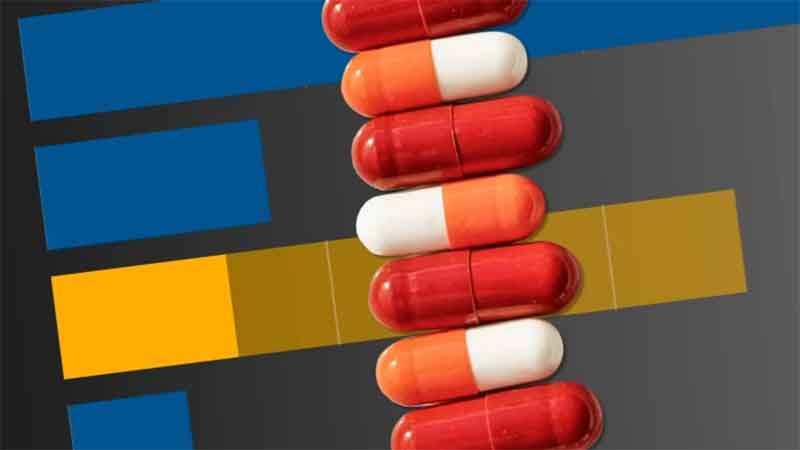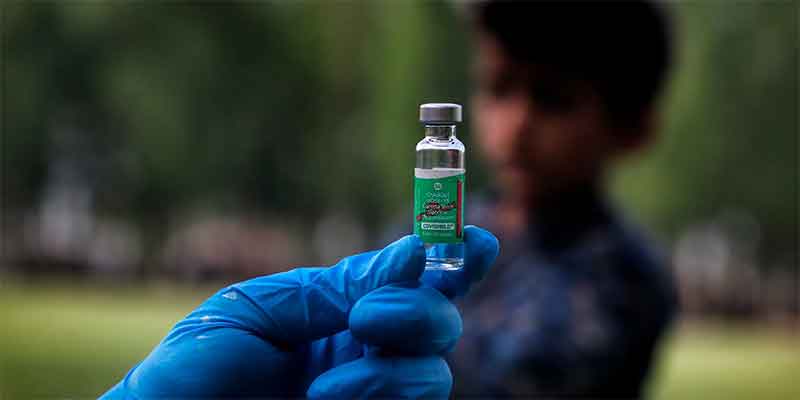
The Union Health Ministry has asked the doctors to judiciously use the antibiotics and give reason whenever using them. Director General of Health Services (DGHS) Atul Goel has said that the doctors must specify “indication, reason and justification while prescribing antimicrobials”. This is in the backdrop of increasing Antimicrobial Resistance (AMR) which has reached alarming levels globally. Antimicrobial resistance means the bacteria or fungi causing the infection are resistant to the antibiotic or antifungal treatment. Therefore if remedial steps are not taken now, it would be difficult to control infections in future. This would have serious repercussions in the developing countries in particular where the infection rate is high. There is enough evidence that as a result of AMR, prevention and treatment of infections is becoming a challenging task. This is resulting in prolonged illness and greater risk of death. According to Kamini Walia, ICMR researcher, the AMR is assuming pandemic proportions in India. Sagacious use of antibiotics is urgently advised or we will be back to the pre-antibiotic era, according to her as per news item published in The Tribune on 19th January 2024 (1).
AMR represents a global challenge. 4.95 million people who died in 2019 suffered from drug-resistant infections. AMR directly caused 1.27 million of those deaths. One in 5 of those deaths occurred among children under 5 years old. Low and middle-income countries bear high burden of drug-resistant infections. India has the 145th highest age-standardized mortality rate per 100,000 population associated with AMR across 204 countries. In 2019, there were 297,000 deaths attributable to AMR and 1,042,500 deaths associated with AMR. In 2019 the WHO labelled AMR as one of the top ten global threats to public health (2).
India leads the world in human antibiotic use. According to The Lancet Microbe journal. According to the Lancet study “Over-the-counter use of antibiotics, lack of awareness, inadequate use of diagnostics, overcrowding, cross-infections, financial compensation of doctors by pharmaceuticals, and poor health infrastructure also amplify India’s antimicrobial resistance problem”. On one side there is over prescription of drugs in India on the other hand the regulatory system is very ineffective (3).
Tuberculosis, as a communicable disease, is an on-going global epidemic that accounts for high burden of global mortality and morbidity. Globally, with an estimated 10 million new cases and around 1.4 million deaths, TB has emerged as one of the top 10 causes of morbidity and mortality in 2019. India accounts for 28% of all TB cases in the world, according to the Global TB Report 2022. There were 21.3 lakh cases detected in 2021. Despite an increase in the budget to tackle Tuberculosis (TB), the interim estimated number of deaths due to the infectious disease in India rose by 10 per cent, from 500,000 in 2020 to 505,000 in 2021, noted the Global TB Report 2022 released by the World Health Organisation (WHO). This comes to 1383 deaths due to TB per day. This leads to prolonged hospitalisation incurring large sum of money.
In addition to death and disability, AMR has significant economic costs. The World Bank estimates that AMR could result in US$ 1 trillion in additional healthcare costs by 2050, and US$ 1 trillion to US$ 3.4 trillion in gross domestic product (GDP) losses per year by 2030 (4).
A new study published in the BMJ Global Health has found that over half a million lives could be saved each year with the effective use of existing vaccines and the continued development of new vaccines to tackle priority pathogens. The study highlights the importance of preventive measures including vaccination in slowing and containing the spread of AMR (5).
Different approaches are required to tackle this problem through policy and regulation. Education and Awareness are extremely important to promote the use of antibiotic scientifically.
Antimicrobial resistance (AMR) is a recognised global threat to health security. Hence its effective management also requires global collaborative efforts.
The G20 summit recently held in India had serious discussion on this issue. The G20 document highlights the need to ensure accelerate research and development (R&D) efforts and revitalize the antibiotics market according to Dr Ranga Reddy, President Infection Control Academy and Honorary Professor University of Hyderabad.
Important issue of concern is that the pharmaceuticals are controlled by the corporate companies. For them profit is the priority than public health. It is important that the researchers, the governments and the civil society activists keep a vigil on the machinations by the corporate interests. We have seen how the vaccine producing companies made super profit globally during the COVID Pandemic. India had established a good infrastructure in the public sector in pharmaceutical and vaccine producing industry. This needs to be rejuvenated.
Dr Arun Mitra is a Practicing ENT Surgeon in Ludhiana, Punjab. He is also the President of Indian Doctors for Peace and Development (IDPD) www.idpd.org
References:
- https://www.tribuneindia.com/news/india/doctors-must-spell-out-reason-for-giving-antibiotics-dghs-582465
- https://www.healthdata.org/sites/default/files/files/Projects/GRAM/India_0.pdf
- https://www.financialexpress.com/healthcare/pharma-healthcare/over-prescription-self-medication-and-regulatory-gaps-leading-causes-of-antimicrobial-resistance-in-india/3322656/
- https://www.financialexpress.com/healthcare/pharma-healthcare/over-prescription-self-medication-and-regulatory-gaps-leading-causes-of-antimicrobial-resistance-in-india/3322656/
- https://www.who.int/news/item/28-07-2023-vaccines-could-avert-half-a-million-deaths-associated-with-anti-microbial-resistance-a-year#:~:text=Globally%20there%20are%204.95%20million,with%20antimicrobial%20resistance%20(AMR)
















































